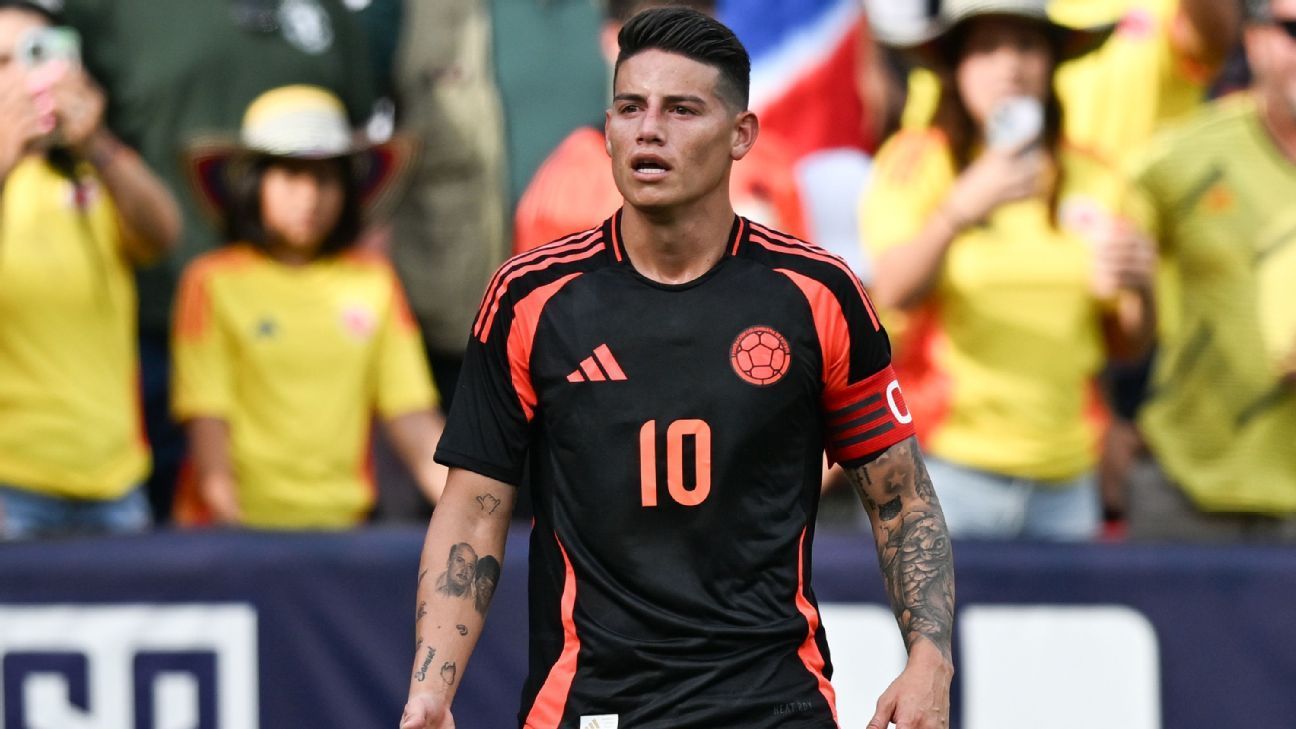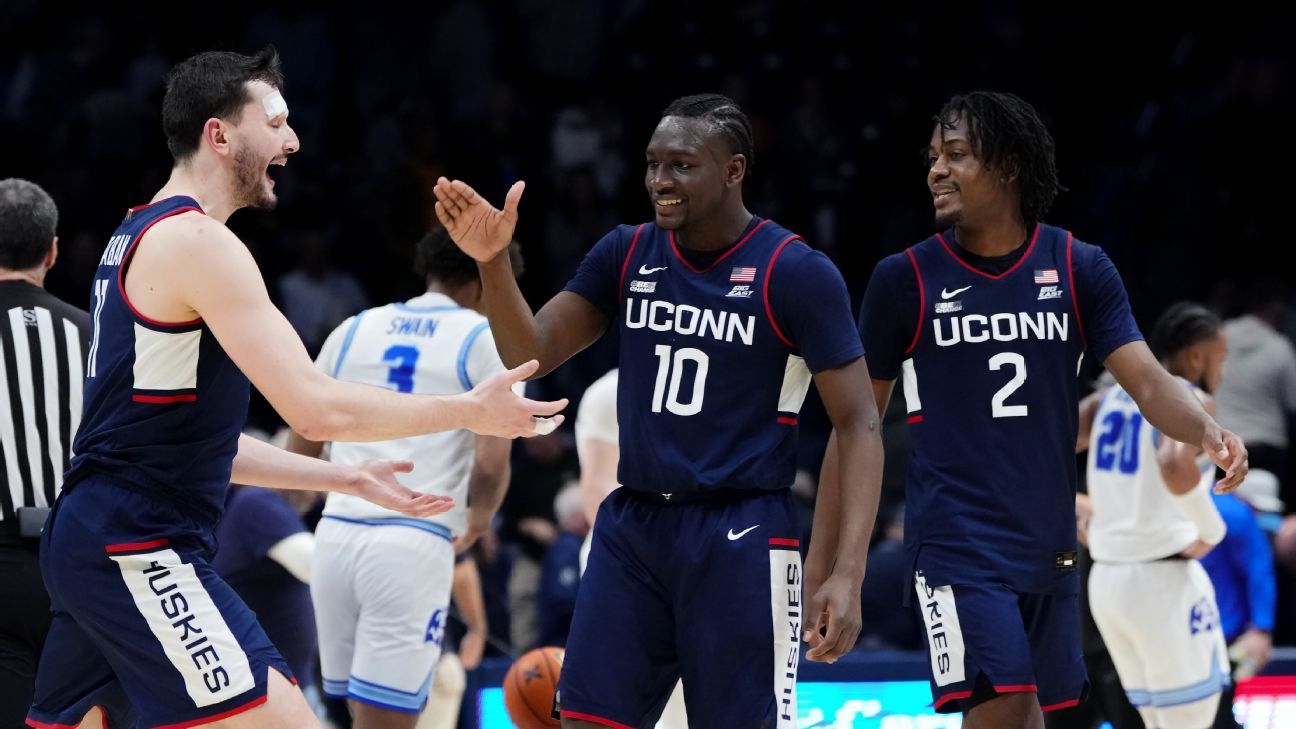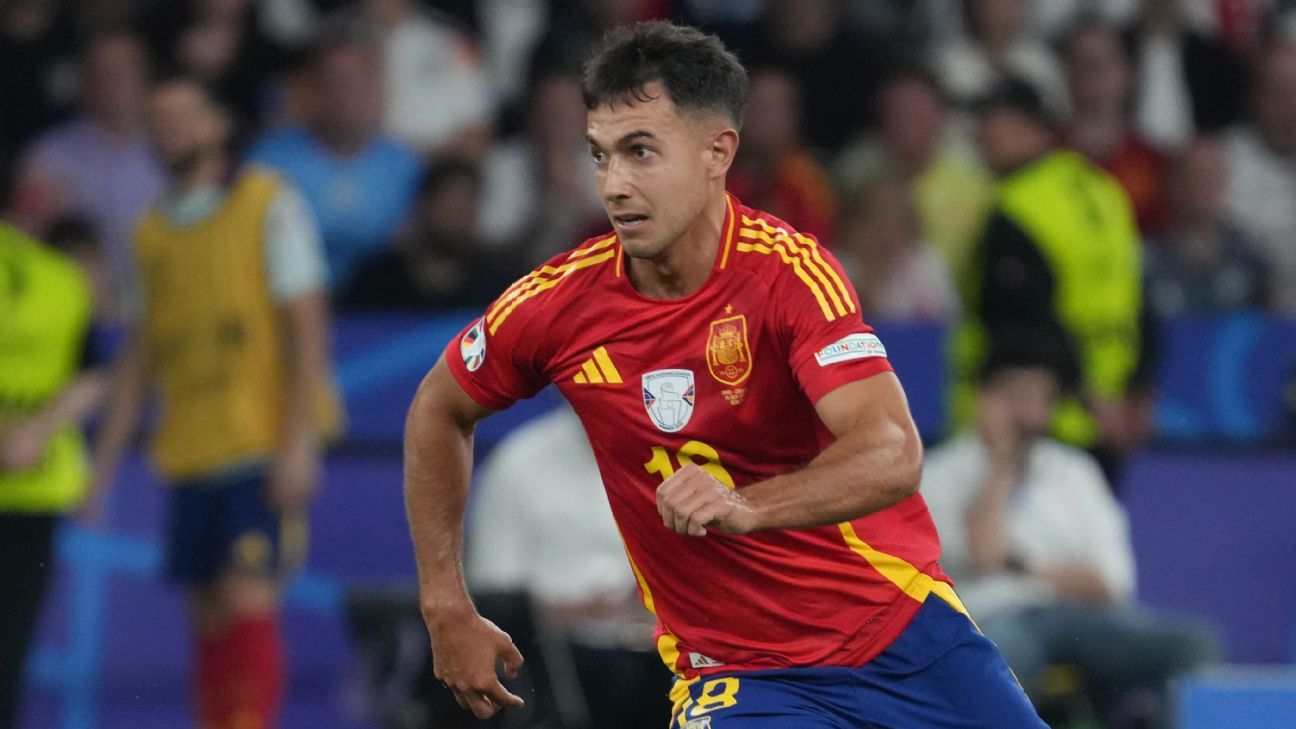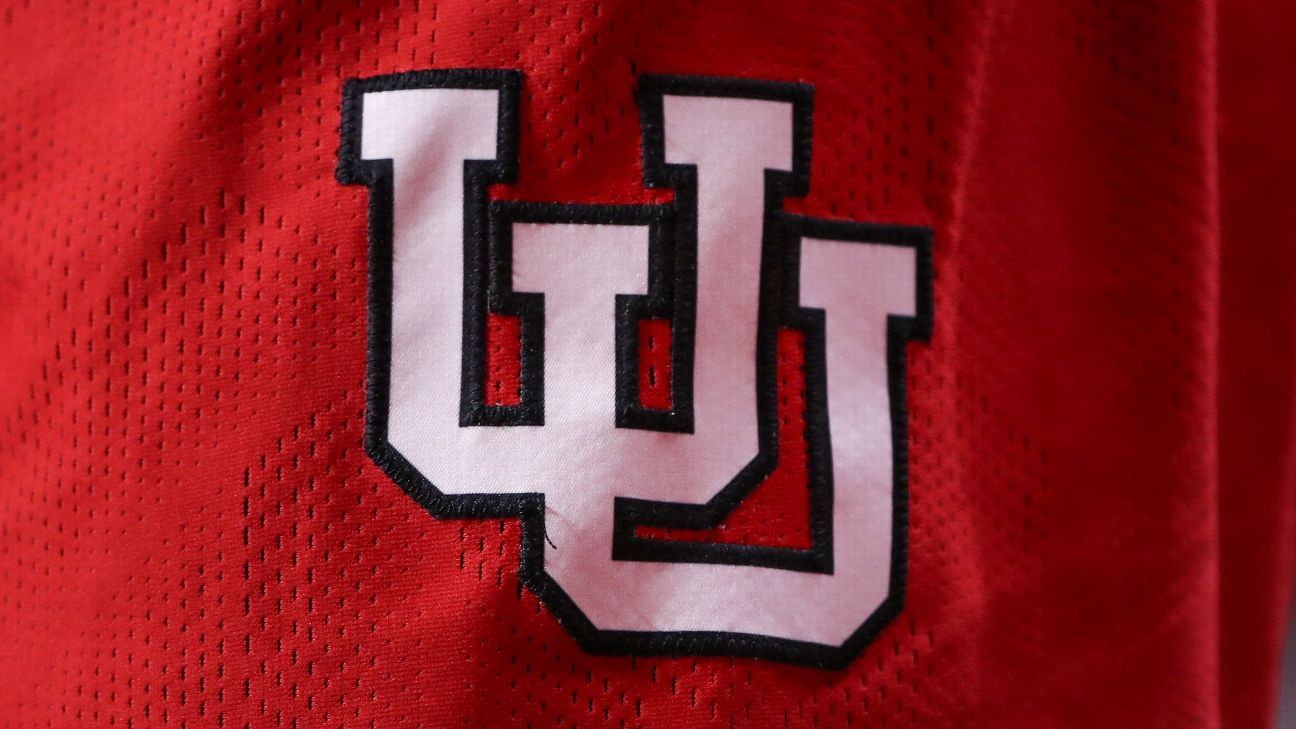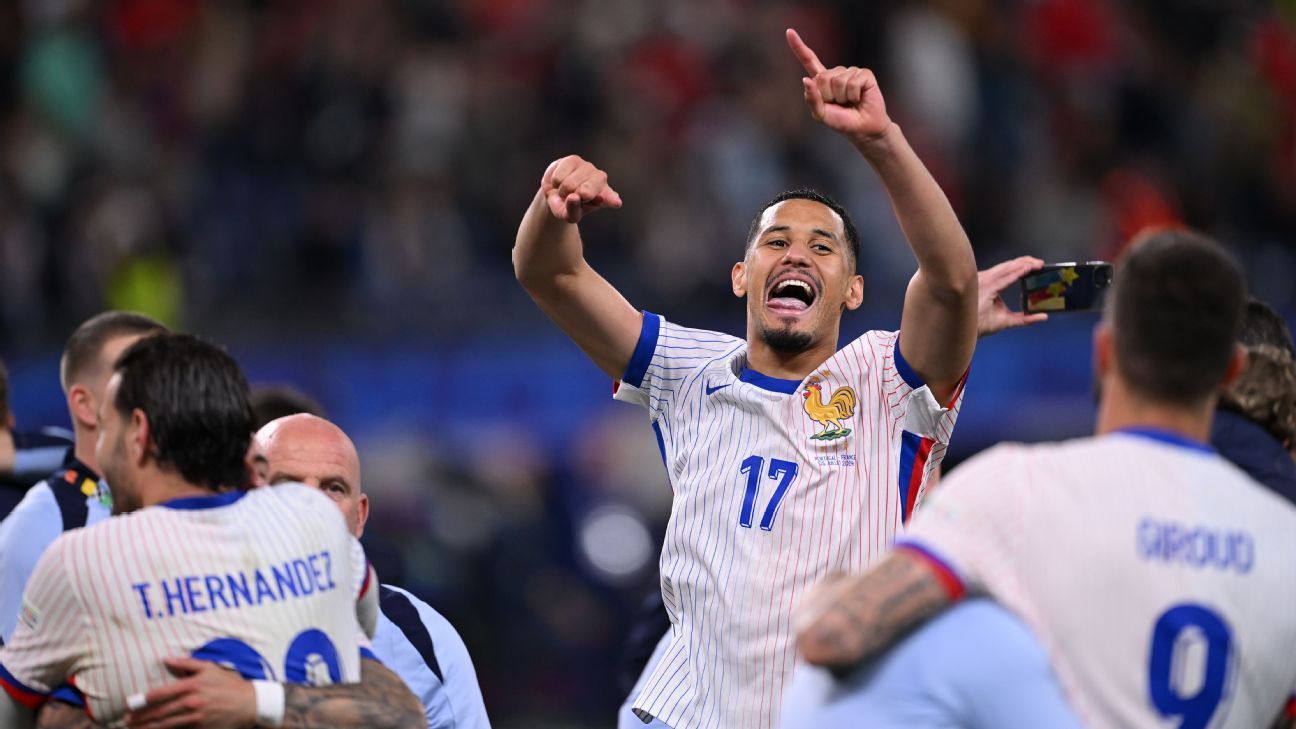Before Colombia's Copa América preparation match against Bolivia, a presentation was made to James Rodríguez to honor his 100th match with the national team. And then he came out and pulled the strings as Colombia cruised to a 3-0 victory.
At his current rate, it would take him a long time to reach the 100-match mark for his current club. He has been at Sao Paulo in Brazil for 11 months, during which time he has played just over 20 games. In the last two months he has played precisely 10 minutes. He is a forgotten man in his club and, at the same time, a key figure in a Colombian team that has achieved a long unbeaten streak. It's a case of Dr. Jekyll and Mr. James.
A decade ago, when he arrived at Real Madrid after a spectacular World Cup, the young Rodríguez seemed to have the world at his feet. The Champions League occasions were going to be his natural habitat, the big games where the Colombian left-hander would impose his class in the proceedings. Instead, he was the ghost of the party where Madrid recently won another Champions League.
Perhaps the ghost was even more present in the semifinal, when Real beat Bayern Munich. It was a meeting of two of Rodríguez's former clubs, while he languished unwanted in Brazil. After Lucas Moura, he is Sao Paulo's highest paid player. And he has produced almost nothing.
Three coaches have tried to unravel the enigma. The club's president, Julio Casares, recently commented that “it does not seem that James Rodríguez figures in our coach's plans.” And with the team racking up a string of wins in his absence, his exclusion hasn't been even the slightest bit controversial.
1:33
Who are the dark horses of the Copa América 2024?
Sebastián Salazar and Hérculez Gómez make their choices for the dark horses in the Copa América 2024.
Brazil is the tenth country in which Rodríguez has played his football. The first five were on the rise: little Envigado in Colombia, winning a rare league title with Banfield in Argentina, triumphing with Porto and then Monaco before landing at Real Madrid. The next five felt like a global tour of disappointment. Germany (Bayern Munich), England (Everton), Qatar (Al Rayyan) and Greece (Olympiakos) saw flashes of brilliance amid the problems.
Brazil is still waiting for flashes of brilliance.
Minor injuries have clearly been a big part of the story. At most of his clubs, he has been out of action for extended periods. But surely there is more than that. Perhaps former Liverpool and Republic of Ireland international Ray Houghton pointed out at the moment of triumph, when Rodríguez was negotiating with Real Madrid in 2014.
Houghton's opinion was that the player was not fast enough, that he lacked that vital half meter of pace to be the star of the show in a Real Madrid team where Cristiano Ronaldo was king of the hill. It turned out to be a brilliant observation. Rodriguez was never able to become the main man. On the contrary, he became less and less important to the team.
In each of his six seasons in Madrid, he played fewer games than the previous one, and his total of 37 goals in 125 games for the club is hardly impressive. Considering that Gareth Bale, with 106 goals in 258 games, did not live up to expectations, where does that leave Rodríguez?
The likely answer is that it left you frustrated, and dealing with the consequences of the disappointment hasn't been easy.
Has your attitude always been correct? There have certainly been complaints in Sao Paulo. TV Gazeta journalist José País said that people from the club had told him that “at times there seems to be a lack of commitment on the part of James Rodríguez… Sometimes in physical training the others are doing four or five sprints and he “I'm only doing one.”
And in March, Sao Paulo was eliminated from the local state championship in a penalty shootout. Rodríguez was playing that night but did not step forward to take the penalty. This, José País said, “upset some of the other players.” It may have been the moment when it became difficult to see a future for him at the club.
Sao Paulo allowed Rodríguez to leave early to join the Colombian team preparing for the Copa América. There is almost certainly hope everywhere that he will find a new club (he has expressed a desire to return to Spain) and that he will not have to return to Brazil after the Cup. It is superfluous for Sao Paulo's needs, but the The 32-year-old player continues to be of great importance for Colombia, although this relationship has not been without problems either.
Rodríguez established himself as the most important player on the national team during the 2014 World Cup qualifiers, and then, in the tournament in Brazil, he exploded as a true star. Four years later, he shined again in Colombia's 3-0 defeat of Poland. It was one of the best displays of the tournament. However, it was the only time at the World Cup in Russia that he was fit. Without him, Colombia lost to England in the second round and has not played a World Cup match since.
Their failure to qualify for Qatar was truly extraordinary: a talented team went seven games in a row without scoring a single goal. Rodríguez was part of the problem. He fell out with former Colombia coach Reinaldo Rueda, was withdrawn and then called up for the last four of those scoreless games, without improving things.
There were rumors of disagreement in the locker room. Months later, however, Rueda took it upon himself to praise his contribution, describing Rodríguez as “an excellent person and a great professional, competitive and demanding of himself, a great leader who becomes popular.”
Rueda was replaced by Argentine coach Néstor Lorenzo, who, at least so far, has been more successful than anyone in converting Rodríguez's undoubted potential into productivity. The team's psychologist, Marcelo Roffe, believes that the problem was that the player had been “misinterpreted in some of his statements.” In fact, he told the newspaper El Colombiano, “James has his feet on the ground. Thanks to Néstor Lorenzo he is happy again in the national team and that is why he makes the fans happy again.”
It could be that the solution is more tactical than psychological. It was a surprise when he was called up for the March friendlies against Spain and Romania. His midfield colleague from 2014, Alexander Mejía, was not impressed. “I wouldn't have called him,” he told Win Sports. “He hasn't played regularly for Sao Paulo and there are other players who have been waiting for an opportunity.”
And then, in the second half against Spain and throughout the game against Romania, Rodríguez showed that he can contribute something unique. On both occasions he was masterful, dictating play from deep and serving as a long-range supply line for Liverpool winger Luis Diaz.
It could be that this is Néstor Lorenzo's secret. In an otherwise very structured team, Rodríguez is left free, wandering to find spaces from where he can do the most damage. This often means that he drops a little deeper than he used to, where it is easier for him to find space, which also means that he is not encroaching on the space that Diaz needs to run at opposing defenses. At best, the two can operate as a single force, Rodriguez threading the passes for Diaz to run.
Díaz has no doubts about the appreciation he has for his teammate. Rodríguez, he says, “he is the idol of idols. I respect and admire him a lot.” Supporters of some of Rodríguez's recent clubs could find it difficult to reach an agreement, and perhaps the Copa América will force them to change their minds.
For Rodríguez, this is not just another tournament. He turns 33 two days before the final. His time at the top is limited. This Cup, then, is an opportunity for him to make a statement as a footballer and find a club willing to sign him once the show is over.

